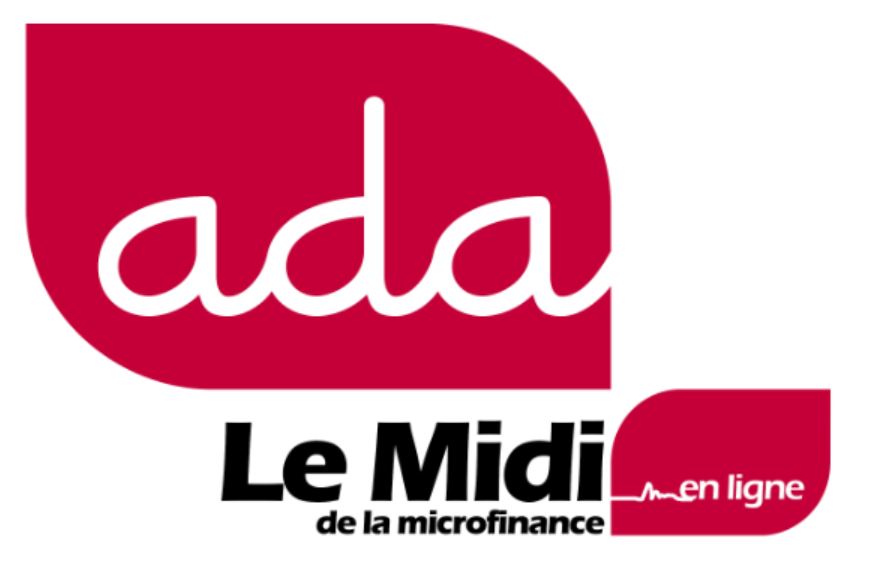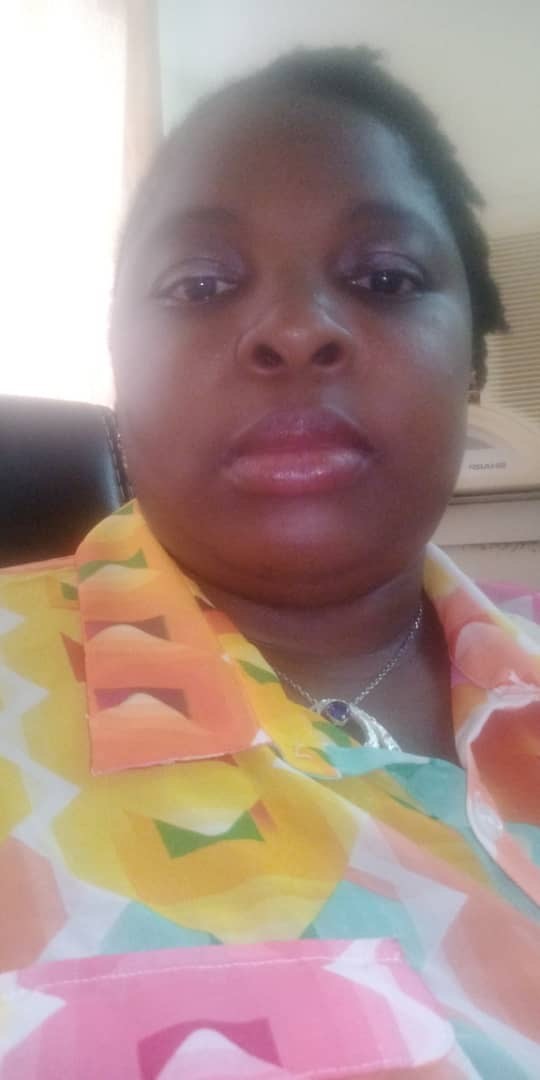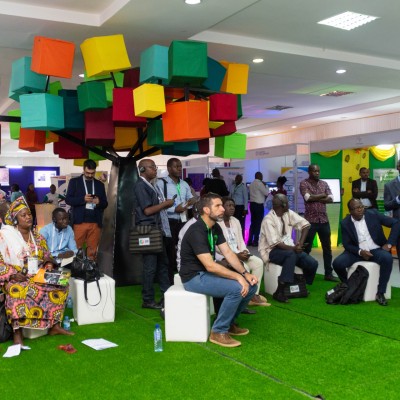49th Midi de la microfinance en ligne

"Microfinance after Covid-19:
dialogue between ADA and its partners in West Africa"
YOU WERE 500!
Thank you all for your participation in the discussion.
You will find below the answers to the questions you asked.
All the answers to your questions
Many of you asked questions at the Midi de la Microfinance held by ADA on 24 June. Unfortunately, we ran out of time before we could answer them all. As promised, we will attempt to do so now after reviewing the questions and grouping them into 4 main themes:
- Support from ADA: what are the requirements for receiving support from ADA? What kind of support can ADA provide? More specifically, how can ADA contribute to the digitalisation of MFIs?
- Financing: what can ADA do to finance MFIs? How can it help MFIs to access financing?
- Clients: how can we meet clients' needs and help them to adapt to the consequences of the crisis?
- Authorities: What steps should authorities (regulators and governments) take? What can ADA do in this regard?

SUPPORT FROM ADA: What are the requirements for receiving support from ADA? What kind of support can ADA provide? More specifically, how can ADA contribute to the digitalisation of MFIs?
We received these questions many times, especially from participants from countries where ADA is not very active or not at all (Cameroon, DRC, Gabon, Burundi, Haiti, Mauritania, Guinea, etc.).
ADA focuses on countries that have a partnership with the Luxembourgish Directorate for Development Cooperation and Humanitarian Affairs (in Africa, Burkina Faso, Niger, Mali, Senegal and Cape Verde). While it can get involved in other countries, its scope is limited.
Several ADA projects are ongoing in these countries. The main ones are:
- Digital Finance Initiative
- Support for rural and agricultural finance
- Support for financing for young entrepreneurs and SMEs
- Support for governance and management
Capacities and support requirements are evaluated prior to signing a partnership agreement with each selected MFI. ADA prioritises MFIs that meet the following criteria:
- Tier 2/Tier 3;
- A powerful social mission reflected in their practices
- A scope broad enough to justify the mobilisation of resources
- Genuinely motivated governance (management team and board)
- Financial strength
- Transparency (availability of financial and social data)
ADA receives a grant from the MFEA that enables it to finance the majority of its training and technical support for MFIs and networks. More specifically, these resources are used to pay the ADA experts who run these activities, local and international consultants and, sometimes, project-related expenditures or investments (e.g. co-financing an IMS, a "Rural Finance" project officer at an MFI, operating expenses of a project to support financing for young entrepreneurs, etc.).
In addition to these examples of support in the framework of a partnership agreement, ADA makes a wide range of tools free of charge, which has grown since the beginning of the crisis to meet the needs of MFIs: Microfact/factsheet, Microvision, Continuity Plan guide, etc.
ADA also conducts studies and research to generate and spread useful information for inclusive finance stakeholders. ADA is participating in several ongoing studies on the consequences of the crisis on MFIs and their clients.
ADA supports the definition and implementation of MFIs' digital finance strategies through its Digital Finance Initiative. There are three types of projects that ADA can co-finance for 70% of the total cost up to a maximum of €100,000:
- Integrating telecommunications operators to enable clients to make transactions via their mobile phones
- Setting up a network of local or travelling agents to be as close to clients as possible
- Migrating the MFIs' current information and management systems (IMSs) to a cloud-based solution, which is a prerequisite for the implementation of the first two solutions
MFIs can also choose to pursue other types of projects (e.g. process digitalisation, credit scoring).

FINANCING: What can ADA do to finance MFIs? How can it help MFIs to access financing in the aftermath of the COVID-19 crisis?
Since its creation in 2009, ADA has provided investment advice to the Luxembourg Microfinance Development Fund (LMDF). In other words, ADA does not directly finance MFIs.
LMDF offers senior loans mainly to Tier 2 and Tier 3 MFIs with a strong social purpose and significant growth prospects. ADA develops the pipeline of MFIs to be funded and manages the portfolio, whose loan conditions are subject to eligibility criteria.
We have seen that the impact on the portfolio of MFIs financed by LMDF varies a lot from one region, country and institution to the next.
Since the beginning of the crisis, our focus has been on establishing a regular dialogue with MFIs and other investors. The dialogue with MFIs is necessary to understand the gravity of the situation (deterioration of the PAR, liquidity shortages, business continuity, etc.) and identify the actions that may need to be taken (debt rescheduling, debt restructuring, etc.). These actions were then coordinated with other investors following the principles established at earlier investor coordination meetings.
However, we are still unable to get to grips with the actual impact of the crisis because there are too many unpredictable variables at play. This is why we believe it is very important to gather data and information to be able to update our assessments and analyses regularly and, therefore, to be able to take the right actions at the right time.
The current situation also means that we need to be more flexible than ever before. New operating procedures and changes to MFI selection criteria are being evaluated. Furthermore, long before the crisis struck, we had left open the possibility of financing innovative businesses that provide their services through digital platforms to respond to basic needs, such as access to power or agricultural loans. The importance of these businesses in our partner portfolio will continue to grow.

CLIENTS: How can we meet clients' needs and help them to adapt to the consequences of the crisis?
ADA has always targeted MFIs capable of meeting the needs of all their clients —especially the most excluded segments— in a relevant and sustainable way.
The risk of COVID-19 accelerating a switch in the focus of inclusive finance towards providing financial services to lower-risk, more formal clients is greater than ever.
Supporting clients is therefore essential to MFIs. As has been the case in other emergency situations, in the current crisis, MFIs have become an effective channel to enable clients to access information (distancing measures, etc.), basic first-aid equipment (hydroalcoholic products, masks, etc.) and financial resources (through savings, where possible, or debt rescheduling). All these measures have helped numerous low-income people to stay safe and afloat.
Striking a new balance
It is true that these actions can lead to significant difficulties for MFIs in the long term. It is true that these actions can lead to significant difficulties for MFIs in the long term. To resume their activities, they may have to target regions where lockdowns are less stringent and markets are less affected (rural zones/agricultural sector), focusing on these areas and markets to start providing funds again. To the extent possible, they may have to set terms and conditions tailored to an uncertain situation in which resilience and the ability to adapt are increasingly important. Designing client-oriented savings, credit, insurance and financial literacy products and services is crucial. Digital tech holds vast potential in this context.

AUTHORITIES: What steps should authorities (regulators and governments) take? What can ADA do in this regard?
Governments face extremely difficult choices. Unfortunately, the focus on public health necessitates restrictions on movement and social distancing. These measures could have a calamitous impact on the economy.
Governments therefore have to strike a balance between the restrictions needed to prevent the collapse of their healthcare systems and mitigating their negative impact on the economy.
There is no choice but to take a systemic approach with fiscal packages to protect clients and, at the same time, cushion the blow on the economic and financial sectors.
Debt rescheduling, the suspension of certain taxes and the temporary suspension of debt service payments for state loans are just a few concrete examples of measures taken in West Africa.
Governments and development banks also need to work together to launch support and stimulus plans in which inclusive finance stakeholders are involved. Specific MFI refinancing funds and guarantee schemes to ensure the deployment of international investment fund would be extremely useful to help get the sector back on its feet.
There is a role for professional associations and networks in this scenario. They are the logical choice to make the case before governments and central banks, can act as a lever in mass communications in clients and can coordinate with international donors more easily.
OTHER: What is the role of insurance?
Growth prospects for insurance services came in last in the FGCA/ADA/Inpulse survey of MFIs, which is easy to understand in a context in which risk has turned into reality.
However, the prominence of the issue may go back up in the future, as the current crisis serves as a stark reminder of the relevance of these products (life insurance, income protection insurance, etc.).
CONCLUSION
There are certainly questions that remain unanswered (inclusive finance in the context of insecurity in the Sahelian countries, the potential role of insurance, etc.).
As we have said, we will continue the dialogue with our partners and provide feedback to try to complete our analyses and define the solutions we want to provide.
In particular, this should be reflected in our 2021 action plan, which is currently being defined, and in the medium term, in our new 2022-2026 PDO, which should be ready by mid-2021.
What participants have to say

"I participated with interest in the Midi en ligne organised by ADA. I work for the Ministry of Economy, Finance and Development and I think that this kind of activity can be very useful for microfinance institutions which, in some cases, are facing the Covid crisis with a lot of difficulties.
So I think it is very important for them to know that therae are initiatives such as ADA that are engaged in the development of support strategies for the sector.
In the future, I would like to participate in Lunch Menus on advice to regulators, such as BCEAO for example, particularly in relation to the measures to be adopted in this situation to support MFIs and the financial education activities to be considered for a longer-term approach. »
Fatoumata Ouedraogo, Treasury Inspector, Ministry of Economy, Finance and Development, Burkina Faso
"Personally, I really appreciated this online lunch, especially for the way the different panellists answered the questions with precision. For the next edition, I propose that the duration be at least 1 hour and a half to devote even more time to the discussion. In the future, I would very much like to know the opinion of ADA and other experts on the steps to re-launch the activities of an MFI. "Personally, I really appreciated this Online Lunchtime, especially for the way the different panellists answered the questions accurately."
Kokouvi Dzidzogbe Sogan, Technical Referent Risk Management/Africa, Entrepreneurs du Monde, Togo
"The Midi en ligne relating to Covid-19 is a commendable initiative that has made it possible to inform the actors on the different activities carried out by ADA in the framework of the accompaniment of MFIs and others for the pursuit of their activities. The topics discussed and the answers given to the different questions asked by the actors edified all the participants and showed the professionalism of ADA in the field of microfinance and inclusive finance.
ADA, through the two speakers, clearly distinguished itself once again from the other partners, especially in terms of its mastery of the subjects and the production of consistent documentation to accompany the sector in this difficult period of pandemic."
Justin Jules Koutete, Managing Director of the MFI UCEC-MK, Chad
"Personally, I enjoyed the online lunch organized by ADA. It was a first experience for me to participate in an online lunch and I particularly appreciated the exchanges, the panelists' answers to the questions, the content of the discussions, etc. I was very pleased to be able to participate in this event. Microfinance institutions need these kinds of activities as often as possible in order to take a step back on their functioning and to acquire rehabilitation strategies. In an upcoming online lunch, I will propose that you can come back to the guidance note on business continuity for MFIs".
Fabrice Bikaya, Head of Administration, Finance and Human Resources, SMICO-SA , Democratic Republic of Congo
Reminder of the Midi theme
At a time when questions are being asked about how to build and rebuild microfinance in the post-covid world, ADA has embarked on an unprecedented exercise of dialogue with its partners in Africa to discuss new needs and new projects to be developed and built together. The world is going through an unprecedented economic crisis and in this context, Africa, with its entrepreneurs, its actors of inclusive finance and its youth has more than ever demonstrated its resilience. New modes of intervention, new support can thus be imagined, other modes of financing and investment can also be put in place to respond to the short, medium and perhaps even long term.
To prepare together ADA's responses to the economic and social consequences of the pandemic, by co-developing a new inclusive finance, we have invited you all to this original exercise for an hour of discussion and listening.
An open discussion: more than 130 questions asked!
This June 24, during one hour, Laura Foschi (Executive Director of ADA) and Christian Baron (Director of Operations), met with the 500 participants online to answer their questions and concerns about the post-Covid-19 era in the microfinance sector.
More Midis to come
This Midi was initially address West African partners. Other Midis de la microfinance dedicated to Latin America, East Africa and South-East Asia will take place soon.
Speakers of the Midi
Laura Foschi, Executive Director, ADA Luxembourg
Laura Foschi is currently Executive Director at ADA. She is also Senior Investment Manager and responsible for all investment services to Luxembourg Microfinance Development Fund (LMDF). Prior to this position, she has been Deputy Director at ADA for 3 years, and the general director of the microfinance investment vehicle Consorzio Etimos for 5 years. She has also coordinated and delivered training and technical assistance in microfinance programmes during more than 10 years in Latina America, Africa and Balkans.
She has been member of the board of directors of FEBEA (European Federation of Eth ical and Alternative Banks). She was lecturer at the University of Parma where she taught the Economics of Microfinance and she was also board member of the Master on Finance for Development. She additionally worked as a consultant for UN agencies such as CEPAL (Comission Economica para America Latina y Caribe) as well as European commission funded programmes.
She has written publications on social banking as well as social capital and microfinance. She speaks fluently Italian, French, English and Spanish. She is member of the Steering Committee of the Responsible Microfinance Facility and of the EIIL (European Impact Investing Luxembourg). Her main areas of interest are impact and inclusive finance, sustainable development and green economy.
She currently provides trainings and lectures on inclusive finance at University of Luxembourg, Université de Lorraine, European Microfinance Programme (Libre Université de Bruxelles), and many other training centres in Africa, Latin America and Asia.
Christian Baron, Head of Operations, ADA Luxembourg
Christian Baron is a French national and holds two Masters, the first one in Development Economics from University Paris I Sorbonne and the second one in Agriculture Economics from the Conservatoire National des Arts et Métiers of Paris.
He joined ADA in June 2016 as Executive Advisor, and went onto becoming Director of Operations of ADA in January 2017. Christian has been involved in the development of rural and urban MFIs in developing countries for more than 28 years. He began his career in microfinance as an expatriate technical advisor on the implementation of a village saving and credit bank network in Mali. Thereafter, he joined CIDR Head Office, where he was responsible for the backstopping function in the Microfinance Department for more than 10 years. He then joined the GRET in 2003 as Head of the "Microfinance and SME Department”. Besides the promotion of microfinance activities in Africa, Asia and Central America, he developed several programs aiming to facilitate SME access to support, advice and training services. For the five years before joining ADA, Christian was responsible for providing backstopping services to Greenfield MFIs projects in Africa and South East Asia. He also served as a Director of several MFIs.
Paul II Singoué – Africa 24 Television
Paul II SIngoué is a journalist / presenter / special envoy and head of information at Africa 24 Television in Paris (France).
This 49th Midi de la microfinance online is organised with the support of the Directorate for Development Cooperation and Humanitarian Affairs, in collaboration with the Banque de Luxembourg.
The Midis de la microfinance are held during lunch breaks, between 12.00 and 14.00. Their agenda includes the presentation by an inclusive-finance expert of a study or a practical case, which is followed by a questions and answers session with the audience.





